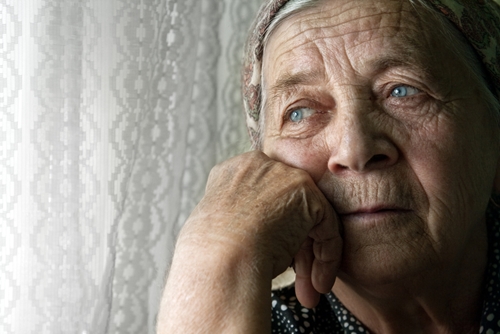Dealing with the loss of a partner

Seniors face a range of life changes as time goes on. Some of these are positive, while others are very challenging. One of the most difficult changes a person can experience is the loss of a partner. Whether a spouse or a longtime love, losing your partner is a terribly difficult thing to endure. Part of senior wellness is coping with losses in a healthy way. The alterations that come in the senior years, like possible losses in independence and physical function, must be grieved. Even more so, however, the loss of a partner can disrupt the fabric of your life.
The good news is that seniors are remarkably well prepared for handling the grief that comes with a partner's passing. Though each loss truly hurts, researchers have found seniors are resilient in the face of grief, even when that grief comes from losing a partner.
"People end up better able to cope than we imagine," Dr. Julie Piercy, professor of psychology at Central Virginia Community College told Our Health Virginia.
Unfortunately, dealing with death is a natural part of life, and while it may seem impossible to do, many people make it through this situation every day. No matter how overwhelmed you feel at certain points in your grief process, know that you can do the same.
Part of coping in a healthy way is understanding how grief tends to work. You may already be familiar with this process, whether from the death of other loved ones or other losses you have experienced in your life.
"Grief is a very normal experience though it often incurs very negative emotions," Dr. Peter Betz, medical director of Geriatric Psychiatry at CentralHealth in Lynchburg, Virginia.
As such, you are likely to have experienced grief in one of its forms before.
When living through the loss of a partner, you can expect to feel many emotions. Deep feelings of sadness and loss can come and go, and you may at times feel completely normal. Holidays you used to enjoy with your partner, or your anniversary, may bring up feelings of intense sadness years after the loss itself. However, you should be aware that the emotions of grief can easily become depression. If you feel persistently sad over a long period of time, or even hopeless, you should not hesitate to see a professional who specializes in senior mental health.
The ripple effect of loss
Seniors who are going through the universal experience of grief have additional challenges to confront. According to Piercy, the loss of a partner often leads to the loss of your accustomed position in your home and community. If you are used to spending Sunday mornings over a leisurely breakfast while reading the newspaper with your partner, that routine may feel unfamiliar and upsetting when he or she is gone. Friendships you had together as a couple may feel strange when you attend events alone. Within your immediate family, dynamics are likely to change as your children cope with the loss of a parent, just as you grieve the loss of a partner.
It is natural to feel the loss of your routines and social realities as you mourn your partner. You should feel free to do what makes you happy, whether it is continuing routines you had with your partner or making new ones that suit you.
The magnitude of loss that accompanies the death of a spouse can be daunting, especially while managing all of the other aspects of your well-being. It is very important for you – and your family – to seek social support. If you have friends who have also lost partners, consider seeking them out for commiseration and companionship. Talking to someone who understands what you're going through can be a healing experience.
Further help for grieving
Managing grief in a healthy way is essential for senior wellness. If you feel you need additional support in managing your loss, there are many resources available to you. Check out community support groups, books on grief from your local library and consider contacting a senior mental health professional. Losing a partner is a difficult experience, but there is help available.
To maximize your Senior Health Insurance benefits, visit MySeniorHealthPlan.com for quick, simple and easy information.

